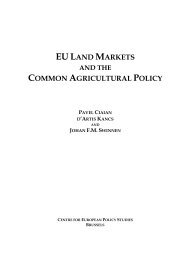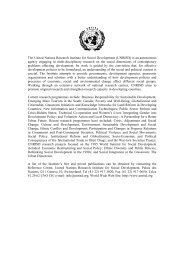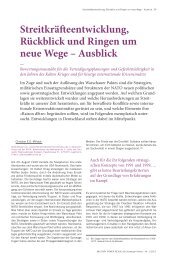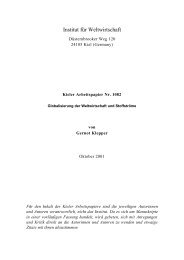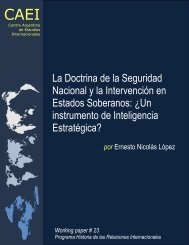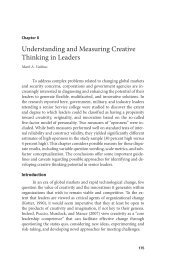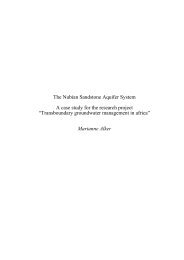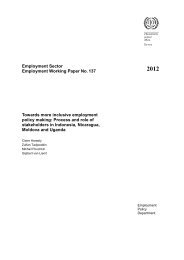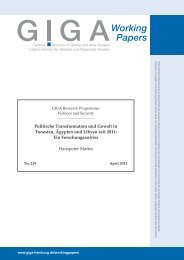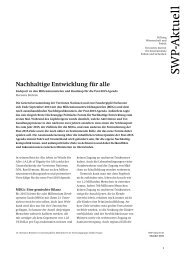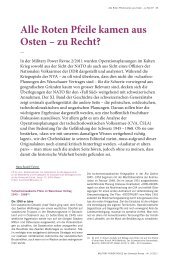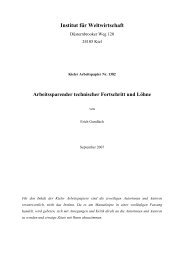A Postcolonial-Feminist Alternative to Neoliberal Self/Other Relations
A Postcolonial-Feminist Alternative to Neoliberal Self/Other Relations
A Postcolonial-Feminist Alternative to Neoliberal Self/Other Relations
Create successful ePaper yourself
Turn your PDF publications into a flip-book with our unique Google optimized e-Paper software.
country that most complied with IMF conditionalities, now suffers from increased<br />
poverty (3% of the population in 1996 <strong>to</strong> 11.6% in 2006), greater social malaise (one of<br />
the highest suicide rates among developed countries), continued labor unrest due <strong>to</strong><br />
massive layoffs, and unprecedented foreign ownership (up <strong>to</strong> 40%) within Korea’s<br />
financial and industrial conglomerates or chaebol (Bello 2007).<br />
Even as a developmental model, neoliberal globalization is losing ground in the<br />
region. Thailand, for example, is opting for a more inward-oriented, Buddhist-based<br />
Keynesianism called the ‘sufficiency economy’ (setakit pawpieng) (Tinsulanonda 2001).<br />
All turn now <strong>to</strong> China, the world’s 4 th largest economy with huge credit reserves for the<br />
US economy, for political and economic leadership. Another unexpected beneficiary of<br />
the crisis have been the family-owned, patriarchally-controlled Chinese firms that<br />
network throughout the world but are most concentrated in East and Southeast Asia.<br />
These firms, more than others, were able <strong>to</strong> withstand the worst effects of the crisis by<br />
transferring capital <strong>to</strong> one another, on a fluid and emergency basis, due <strong>to</strong> their strong,<br />
personal ties cemented by clan, marital, or other kinship relations (Peng 2002). Most<br />
likely, these business networks will play an even stronger role in the region.<br />
Still, these economies end up exploiting a familiar resource: women. A 1 July<br />
2007 labor law in South Korea, for instance, aims <strong>to</strong> regulate those workers, mostly<br />
women, ‘shed’ in<strong>to</strong> part-time status by chaebol reforms ordered by the IMF (Doucette<br />
2007). Meant <strong>to</strong> promote part-time workers <strong>to</strong> full-time status after two years of<br />
employment at the same firm, the law has motivated, instead, the firing of women just<br />
before they qualify for such status; furthermore, their work can be outsourced <strong>to</strong> cheaper<br />
labor elsewhere (Ahn 2007). Women workers thus find themselves, once again, at the<br />
bot<strong>to</strong>m of South Korea’s developmental ladder (Han and Ling 1998, Truong 1999,<br />
Doucette 2007). For economies less industrialized than South Korea’s, sex trafficking<br />
and sex <strong>to</strong>urism remain a compensa<strong>to</strong>ry source of profit-making. A $7- 9.5 billion/year<br />
industry, human trafficking alone targets almost 200-225,000 women and children each<br />
year, most from Southeast Asia (International Organization for Migration 2000: 88).<br />
9



